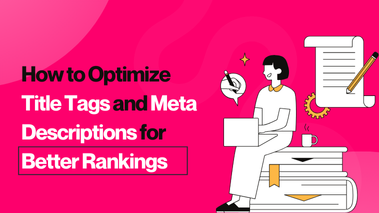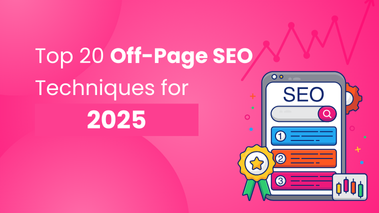Content Length vs. Content Quality: Finding the Balance for On-Page SEO
Published on February 7, 2025
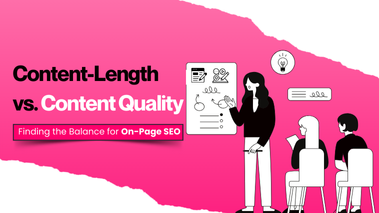
When it comes to ranking well on search engines, one of the most debated topics is whether content length or content quality matters more. While long-form content tends to perform better in search results, simply increasing the word count won’t guarantee success.
Instead, businesses need to focus on SEO optimized content that balances depth, readability, and user engagement.
A well-structured article that provides real value to readers while incorporating strategic keywords will always outperform a long, fluffy piece with little substance. So, how can website owners strike the right balance? Let’s explore.
Understanding the Role of Content-Length in SEO
Search engines, especially Google, prioritize valuable content that answers user queries comprehensively. Research suggests that longer content (typically 1,500–2,500 words) tends to rank higher because it offers detailed insights, engages readers for longer, and earns more backlinks. However, this does not mean every page must be lengthy.
The key is to understand your target audience and the intent behind their search queries. If a topic requires depth, long-form content is the way to go. But if a brief and to-the-point explanation satisfies users, then a shorter article is just as effective. Instead of focusing solely on word count, websites should aim for content that meets the user’s needs while maintaining high engagement.

Why Content Quality Matters More Than Length
While length can contribute to better rankings, content optimisation plays an even more crucial role. Search engines assess the quality of content based on relevance, originality, and user engagement.
High-quality content should:
- Provide clear and valuable information.
- Use natural language and avoid keyword stuffing.
- Include images, videos, and infographics for better engagement.
- Be well-structured with headings, subheadings, and bullet points.
Google’s algorithm updates, like BERT and Helpful Content Update, have made it clear that quality trumps quantity. A well-researched 800-word article that offers real solutions will always outperform a 2,000-word piece filled with fluff.
If your content is poorly written, repetitive, or fails to engage users, it will have a high bounce rate, negatively impacting your rankings. Instead of focusing purely on word count, aim for well-structured, informative, and user-friendly content.
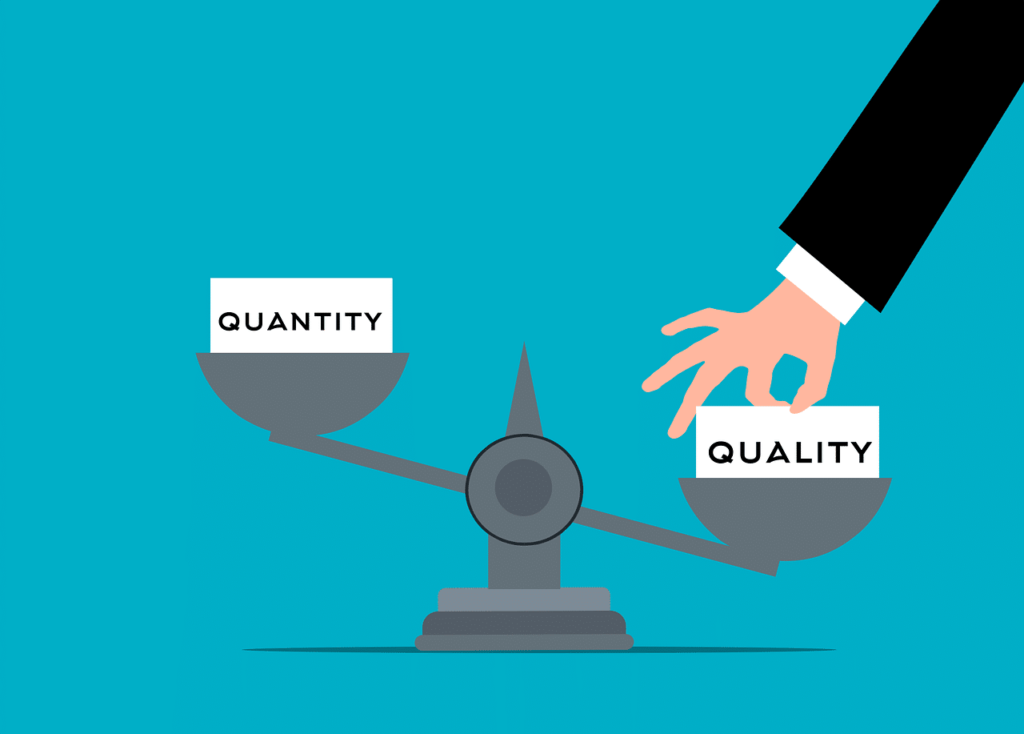
How to SEO Optimise Your Website for the Right Balance
Finding the right balance between length and quality is essential for how to SEO optimise your website effectively.
If you need help in optimizing your website for SEO then choose Digitifyu for Affordable seo cost in chennai.
Here’s how you can achieve this:
- Understand Search Intent
Before creating content, identify the intent behind user searches. Are they looking for quick answers, in-depth guides, or product comparisons? This will help you determine the appropriate content length. - Write Engaging and Valuable Content
Ensure your content is informative, engaging, and easy to read. Use examples, case studies, and statistics to back up your claims. The more value you provide, the higher the chances of user retention. - Use Strategic Keywords Naturally
Instead of stuffing keywords unnaturally, integrate them smoothly within the content. Include long-tail keywords, variations, and LSI (Latent Semantic Indexing) keywords for better ranking. - Optimize Formatting for Readability
Use headings, subheadings, bullet points, and short paragraphs to make content digestible. Break down complex topics into simple explanations. - Improve Internal Linking and External References
Link to other valuable pages on your website to keep users engaged. Also, include authoritative external sources to enhance credibility. - Leverage Multimedia Elements
Adding relevant images, videos, and infographics can boost engagement and improve on-page SEO. Visual elements keep readers interested and reduce bounce rates. - Ensure Mobile-Friendliness
With a majority of users accessing content via mobile devices, ensure your website is responsive and mobile-friendly. Google prioritizes mobile-first indexing, making this an essential factor for SEO. - Optimize for Page Speed
A slow website can drive visitors away. Use tools like Google PageSpeed Insights to identify areas that need improvement. Compress images, use caching, and minimize unnecessary scripts to enhance performance.
By implementing these strategies, you can create content that is both high-quality and well-optimized for search engines without unnecessarily inflating word count.

Content-Length vs. Quality: When to Prioritize Each
There is no fixed rule on how long your content should be, but here are some general guidelines:
- Short-Form Content (300–800 words)
Ideal for FAQs, product descriptions, and quick guides. Best for topics that don’t require much depth. - Medium-Length Content (800–1,500 words)
Works well for informative blog posts, case studies, and general industry insights. - Long-Form Content (1,500+ words)
Best suited for in-depth guides, research articles, and cornerstone content. These pieces attract backlinks, improve domain authority, and establish thought leadership.
The choice between content length and quality depends on the purpose of the content and audience expectations. If your goal is to rank for competitive keywords, detailed long-form content will be more effective. However, for transactional or direct informational queries, shorter, well-optimized content can work just as well.
How to SEO Optimise Your Website for the Right Balance
Finding the right balance between length and quality is essential for how to SEO optimise your website effectively.
If you need help in optimizing your website for SEO then choose Digitifyu for Affordable seo cost in chennai.
Here’s how you can achieve this:
- Understand Search Intent
Before creating content, identify the intent behind user searches. Are they looking for quick answers, in-depth guides, or product comparisons? This will help you determine the appropriate content length. - Write Engaging and Valuable Content
Ensure your content is informative, engaging, and easy to read. Use examples, case studies, and statistics to back up your claims. The more value you provide, the higher the chances of user retention. - Use Strategic Keywords Naturally
Instead of stuffing keywords unnaturally, integrate them smoothly within the content. Include long-tail keywords, variations, and LSI (Latent Semantic Indexing) keywords for better ranking. - Optimize Formatting for Readability
Use headings, subheadings, bullet points, and short paragraphs to make content digestible. Break down complex topics into simple explanations. - Improve Internal Linking and External References
Link to other valuable pages on your website to keep users engaged. Also, include authoritative external sources to enhance credibility. - Leverage Multimedia Elements
Adding relevant images, videos, and infographics can boost engagement and improve on-page SEO. Visual elements keep readers interested and reduce bounce rates. - Ensure Mobile-Friendliness
With a majority of users accessing content via mobile devices, ensure your website is responsive and mobile-friendly. Google prioritizes mobile-first indexing, making this an essential factor for SEO. - Optimize for Page Speed
A slow website can drive visitors away. Use tools like Google PageSpeed Insights to identify areas that need improvement. Compress images, use caching, and minimize unnecessary scripts to enhance performance.
By implementing these strategies, you can create content that is both high-quality and well-optimized for search engines without unnecessarily inflating word count.
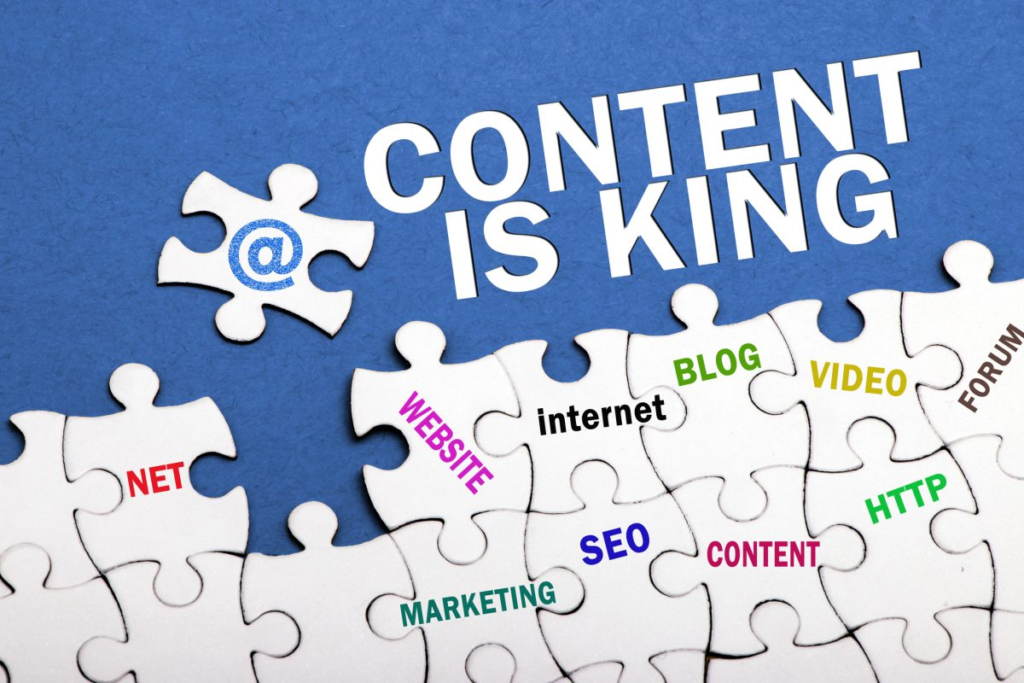
Conclusion: Finding the Right Balance for SEO Success
Striking the perfect balance between content length and quality is crucial for SEO success. While long-form content often performs better, it should not come at the cost of readability and user engagement. Prioritizing high-quality, SEO optimized content that addresses user intent will always yield better results than simply focusing on word count.
For businesses and website owners in Chennai looking to enhance their SEO strategy, understanding the SEO cost in Chennai can also play a crucial role in decision-making. Investing in professional SEO services ensures your content is optimized effectively while maintaining the right balance between length and quality.
In the end, content that is well-structured, informative, and valuable will always have the upper hand, regardless of its length. Keep your audience in mind, focus on engagement, and optimize smartly to achieve the best on-page SEO results.
Basic SEO For B2B : A Step By Step Guide
Learn the fundamentals of B2B SEO with this step-by-step guide. Optimize your website, improve rankings, and attract high-quality leads for sustainable growth.


About Alagar Raja
Alagar Raja is the founder of DIGITIFYU a lead generation agency for coaching businesses and health Industries. He aims to help coach businesses and health Industries. Connect with him on LinkedIn.



